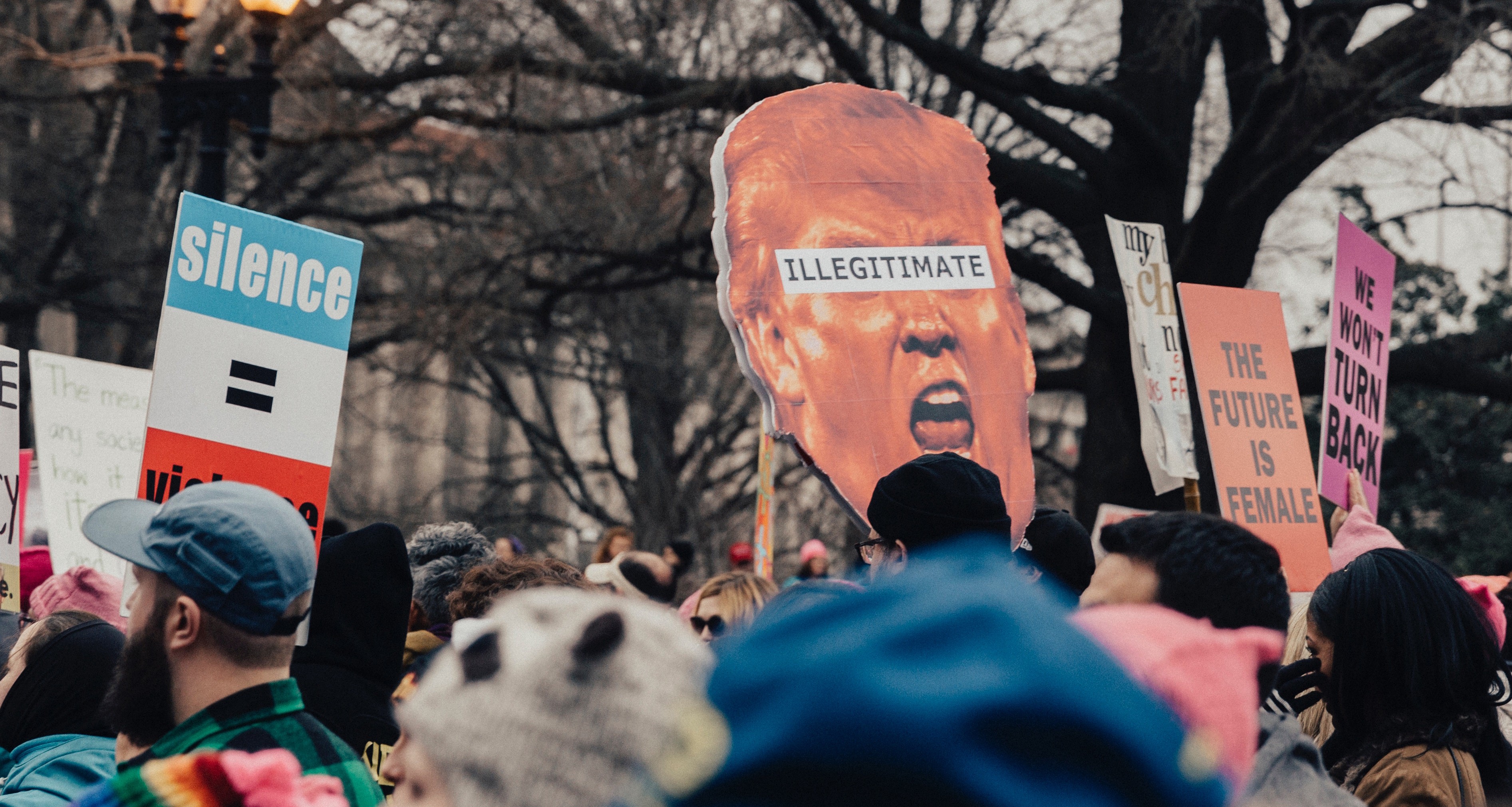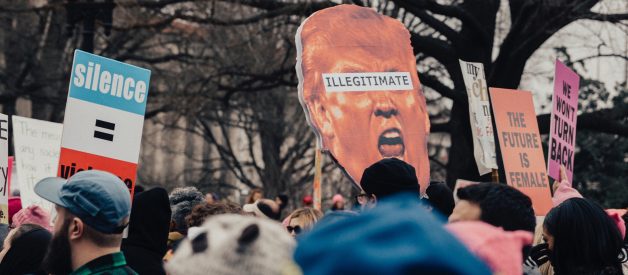 Photo by roya ann miller on Unsplash
Photo by roya ann miller on Unsplash
Over the past couple years, a sort of counterpoint-Reddit has taken Facebook by storm in the form of groups. Thousands of groups have popped up, some created for use as a react meme to tag in relevant conversations (?sounds __ but ok? is a popular format for this), others as support groups for various marginalized identities. The conglomerate of these groups has been dubbed ?Leftbook? for its typical political leanings, with almost every major group including rules such as obligatory trigger warnings when asked; bans on things like sexism, racism, or homophobia; and general activist or radical Leftist ideology.
Another common identifier is the complete lack of compassionate discourse present.
Don?t misunderstand me. If a neo-Nazi is slinging around pro-eugenics rhetoric, by all means, break out your torch and pitchfork. Banning obvious trolls on-sight is acceptable and even encouraged; giving them a platform in the name of ?free speech? is actively dangerous. The problem I?m talking about here is the muddled in-between, when there are disagreements between users who are both well-meaning but have different worldviews or levels of experience on a given issue. This could be a great learning opportunity for both sides. Disagreeing parties could meet in the middle and do their best to understand why the other thinks the way they do, and then explain (and listen!) with kindness on why one particular mode of thought is hurtful to others. Instead, nuance is lost as the murky gray is forced into camps of black and white, and if someone is perceived to not be fully-planted in the white camp, they must be in the black camp ? and therefore an enemy on the same level as the aforementioned neo-Nazis and trolls. The resulting interactions can hardly be called a conversation; more often, well-meaning people who just happened to put their foot in their mouth are mercilessly attacked by other users whose ?superior? beliefs give them the right to play at being the morality police. Inevitably, the attacked person reacts defensively instead of trying to understand where they went wrong, and that is viewed as proof of their evil ways. This is almost never one-on-one; as soon as one person pounces on the perceived wrongdoing, others smell the first blood and circle like sharks. Oftentimes, the mods of these groups are included in the feeding frenzy, and the poor chum bucket is harassed out of the group or banned.
There?s a spectrum here, of course, just like within the issues themselves. Unintentional use of slurs and subsequent reactions is a good example: if someone uses a slur they don?t realize is offensive, but becomes belligerent and refuses to acknowledge that they caused anyone pain or that the pain is important, it?s doubtful I?ll shed a tear for them when they?re berated. On a logical level I know that they?re incredibly unlikely to learn anything from that kind of exchange, but some interactions need consequences. It?s also important to demonstrate support for the hurt party, and to reinforce social norms (i.e., slurs are not okay and should never be used). However, consider this same person using a slur they didn?t realize was a slur (the most common instance of this I see is the g-slur against Romani people, because it?s oversaturated and appropriated in our culture to the point that people don?t even know Romani culture still exists), and their response to someone being upset at them for using it is an innocuous question like, ?Why is it a slur?? That implies they are trying to learn from their mistake. If, and unfortunately oftentimes, when, the mob still descends on them with the same impunity as the former example ? that?s wrong. Sick, even. You are not morally superior for attacking people who aren?t as ?Woke? as you are.
I have experienced this from the witch side of the witch hunt; the post in question was in a group about ableism. I made a post complaining about a perceived able-bodied coworker using the handicapped stall in the restroom when all the other stalls were open, which seemed incredibly entitled, particularly because we have a wheelchair user on our floor. I had intended to create a jumping off point to talk about how able-bodied individuals often co-opt accommodations from disabled individuals as a sort of ?indulgence.? Instead of having this conversation, people berated me time and again for assuming the co-worker was able-bodied, and the conversation shifted to one about invisible disabilities.
I welcomed this at first, as someone with an invisible disability myself, and acknowledged that it?s wrong to assume you know anything about someone?s disability status. I tried to steer the conversation back to what I wanted to address in the first place, but the teeth had been sunken in; I hadn?t sufficiently prostrated myself or retracted my post, and I was still seen as ableist for wanting to get back to the topic I?d meant to discuss. There was nothing productive about the exchange: I?d already communicated my understanding of their side and accepted that I had unconsciously stepped into ableist territory, which was ignored. Instead, it devolved into merciless bullying, where I felt attacked from all sides. As someone with a history of trauma, I was triggered by this. But when I expressed that transparently, I was told I was being emotionally manipulative and imagining the aggression. The method in which people were attempting to ?educate? me was very violent and I was forced to leave the group to preserve my mental health. After making a statement that I didn?t believe I was mentally stable enough to handle the environment, I received cheeky and patronizing goodbyes from the very people who had pushed me to leave.
For people who are supposedly working for equality and better treatment of minorities, this is absolutely unacceptable. There?s a big difference between wielding anger as an activist tool, and targeting individuals with unfair aggression. Save your righteous anger for those moments that really call for it, because those do exist. But when you can engage with someone where they are and have a calm, validating conversation about an issue instead of reacting abrasively, good things can and will happen. Anger should be directed at systems and people in power perpetuating those systems, not at individuals on the same level or lower than yourself on the social ladder; kindness and compassion go much further in bringing people around to greater understanding of differences. Respect cannot be earned if you?re tearing out throats. It just plants more seeds of discomfort and prejudice against groups you stand for. This superiority complex and performative activism just serves to separate us from our opponents and potential allies even more, further devolving into black and white thinking, keeping the divisive political climate going strong. Strangers you engage in discourse with over the internet are still people, with emotions and history you cannot know. As activists, we have a responsibility to be compassionate as well as fierce in addressing problematic behaviors and beliefs.
This mindless all-in attitude that views people as vessels of ideologies instead of individuals is how we ended up with the current administration. I don?t have a perfect solution; I simply believe we should remember people?s humanity before their beliefs. Treating someone like a human being does not require you to accept or even give space for any beliefs they have that are unacceptable. But there are kinder ways of showing someone the door than setting the dogs at their heels ? and a door can always be reopened.
Our biggest flaw at this point in time is in-fighting. The Right complains about Political Correctness as a means of silencing their bigotry; the Left attacks those who don?t adhere to Political Correctness in the exact perfect way, digging up any number of things from a person?s past in order to discredit them. Our community needs to figure itself out and relearn how to be activists of compassion, education, and kindness; not activists of reactionism, false hierarchies of ?good allyship?, and anger. No one is perfect, but we are expecting them to be. Critique and call-outs should be constructive call-ups. Explain why something is hurtful in a kind way and work with someone to change, rather than immediately decide they are wrong and a lost cause.
Being an intersectional activist is a journey. Reach out a hand to pull people up toward you, don?t yell at them for being on a lower step than you are. Because I guarantee, someone else is further up that staircase than you are, and wouldn?t you rather be helped higher than kicked to the bottom?
It doesn?t have to be this way. In fact, it shouldn?t be. We are the world we create, and we should be aiming to change it for the better, not add to the struggle and conflict.
?
Some might argue that Tumblr was already the counterpoint-Reddit, but I?d argue it?s more the counterpoint-4chan; either way, this is not about Tumblr, though Tumblrites could learn a thing or two from this treatise as well.
There?s something insidious about requiring certain vocabulary before you?re viewed as a Good Activist, and accepting buzzwords as shorthand for more nuanced discussion. Not only is it ableist and classist, since it expects a certain level of education and social understanding as a baseline before you even begin the conversation, but it can be weaponized by abusers.


